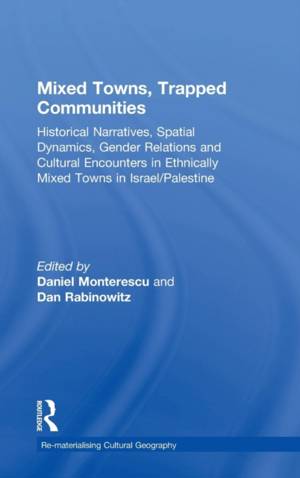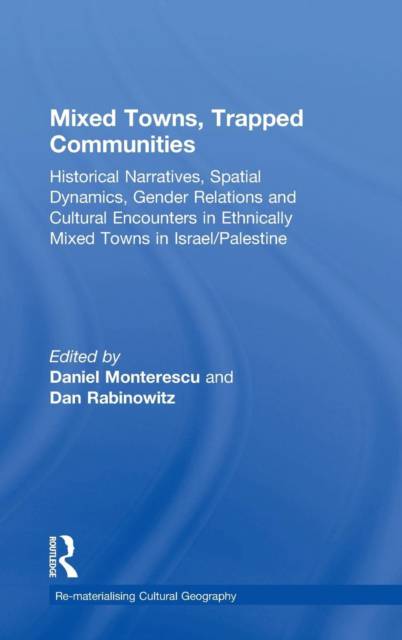
- Afhalen na 1 uur in een winkel met voorraad
- Gratis thuislevering in België vanaf € 30
- Ruim aanbod met 7 miljoen producten
- Afhalen na 1 uur in een winkel met voorraad
- Gratis thuislevering in België vanaf € 30
- Ruim aanbod met 7 miljoen producten
Zoeken
Mixed Towns, Trapped Communities
Historical Narratives, Spatial Dynamics, Gender Relations and Cultural Encounters in Palestinian-Israeli Towns
Daniel Monterescu
€ 290,45
+ 580 punten
Uitvoering
Omschrijving
Modern urban spaces are, by definition, mixed socio-spatial configurations. In many ways, their enduring success and vitality lie in the richness of their ethnic texture and ongoing exchange of economic goods, cultural practices, political ideas and social movements. This mixture, however, is rarely harmonious and has often led to violent conflict over land and identity. Focusing on mixed towns in Israel/Palestine, this insightful volume theorizes the relationship between modernity and nationalism and the social dynamics which engender and characterize the growth of urban spaces and the emergence therein of inter-communal relations. For more than a century, Arabs and Jews have been interacting in the workplaces, residential areas, commercial enterprises, cultural arenas and political theatres of mixed towns. Defying prevailing Manichean oppositions, these towns both exemplify and resist the forces of nationalist segregation. In this interdisciplinary volume, a new generation of Israeli and Palestinian scholars come together to explore ways in which these towns have been perceived as utopian or dystopian and whether they are best conceptualized as divided, dual or colonial. Identifying ethnically mixed towns as a historically specific analytic category, this volume calls for further research, comparison and debate.
Specificaties
Betrokkenen
- Auteur(s):
- Uitgeverij:
Inhoud
- Aantal bladzijden:
- 338
- Taal:
- Engels
- Reeks:
Eigenschappen
- Productcode (EAN):
- 9780754647324
- Verschijningsdatum:
- 20/03/2007
- Uitvoering:
- Hardcover
- Formaat:
- Genaaid
- Afmetingen:
- 156 mm x 234 mm
- Gewicht:
- 653 g

Alleen bij Standaard Boekhandel
+ 580 punten op je klantenkaart van Standaard Boekhandel
Beoordelingen
We publiceren alleen reviews die voldoen aan de voorwaarden voor reviews. Bekijk onze voorwaarden voor reviews.











